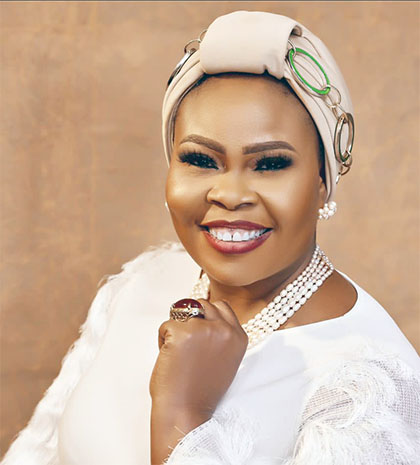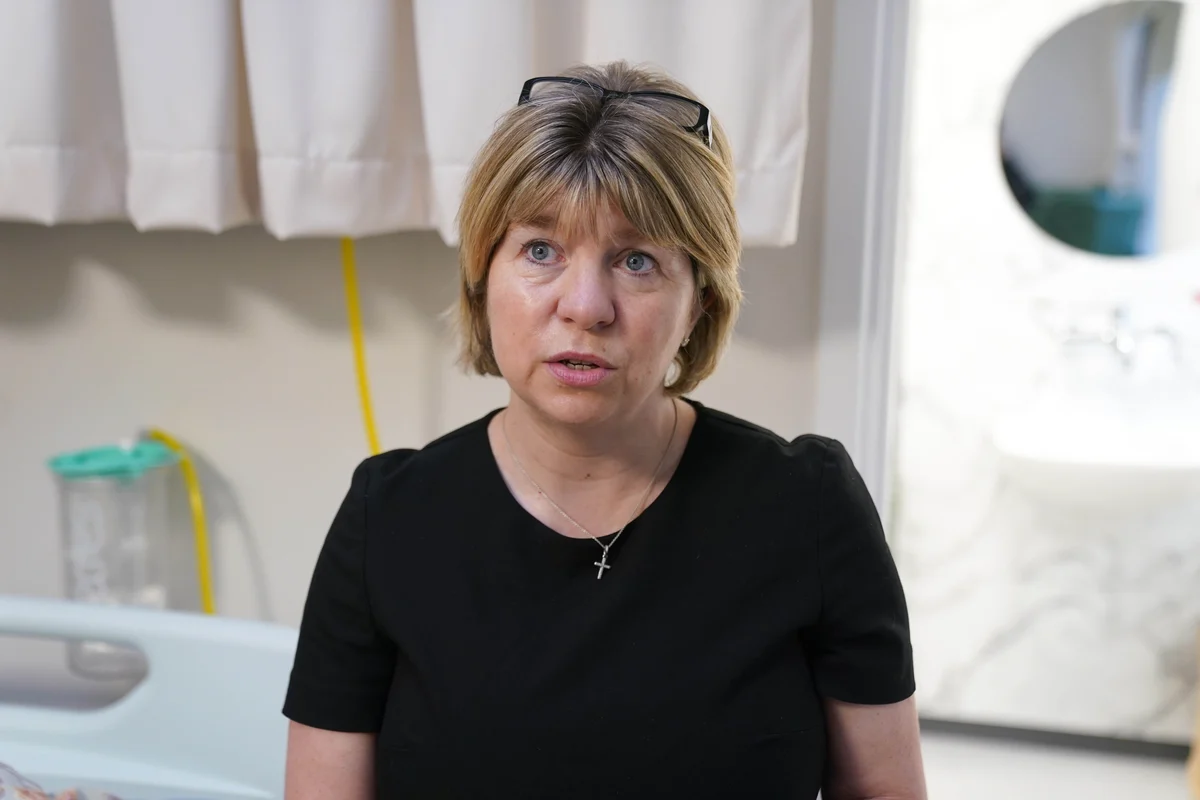By Victoria Ojugbana
Copyright independent

Dr. Maymunah Yusuf-Kadiri is a Nigerian psychiatrist, psychotherapist and a leading voice in mental health advocacy. She is the Medical Director and Psychiatrist-In-Chief at Pinnacle Medical Services, Convener of The Mental Health Conference, as well as a certified Trauma Counselor and Neurofeedback Practitioner. In this interview with VICTORIA OJUGBANA, she speaks about her work, mental health and other sundry issues. Excerpts:
How did you find your way into what you are doing right now?
I have always been passionate about mental health and helping people live fulfilling lives. My journey began with a deep interest in understanding human behavior and emotions, which led me to pursue a career in psychiatry.
Over the years, I realised the significant gap in mental health awareness and care in Nigeria and across Africa.
This inspired me to establish Pinnacle Medical Services and other platforms dedicated to mental health advocacy and education, making it my life’s mission to improve access to mental health care and to normalise conversations around it.
As an entrepreneur, how has the journey been so far?
It has been a journey filled with many challenges and triumphs. As an entrepreneur in the healthcare sector, especially in mental health, I’ve faced high operational costs, bureaucratic hurdles, and the need to constantly advocate for change. However, the impact I have seen—people overcoming their struggles, lives being transformed—has made it all worthwhile.
I have learned resilience, innovation, and the importance of perseverance in creating sustainable solutions that serve our community.
What was your growing up experience like?
I had a supportive family that valued education and personal growth, which greatly influenced my journey.
Growing up, I was curious about human behavior and why people do what they do, which led me to specialize in psychiatry.
My upbringing taught me the importance of empathy and contributing positively to the society, values that continue to guide me both in my personal and professional life.
What makes your brand different from others?
Our brand is unique because we focus on a holistic approach to mental health.
Our mission is to provide end-to-end care within the mental health ecosystem and facilitate safe spaces with a view to achieving healthier, wealthier and happier individuals for a just and equitable society.
We not only provide clinical services but also integrate mental health advocacy, education, and creative tools such as books, and conversation cards like Deep Expression book, Deeper Expression conversation cards for adults, Dig Deeper conversation card for teenagers and Mindfun board game, among others.
We are also the leading provider of Employee Assistance Program (EAP), which is a professional, confidential counseling and safe space service for employees and their household members in any organization.
We currently manage 27 companies with over three million employees and their families. We are committed to breaking the stigma around mental health and empowering individuals to take control of their mental well-being through multiple touch points, including therapy, workshops, and community outreach programmes.
Also, we have our annual The Mental Health Conference (TMHC) where individuals can have mental health conversation unapologetic. Let’s not forget our telemedicine platform, HOWBODI (www.howbodi.io), which is the most innovative mental health in Africa and its mobile booth that makes mental health care accessible, available to the underserved communities and affordable. It’s free to download from Google play store.
What challenges do you face as a woman in this profession?
Being a woman in a traditionally male-dominated field comes with its own set of challenges.
There are times when I have had to work twice as hard to be heard and to prove my expertise. Additionally, balancing my professional responsibilities with personal life can be difficult.
But, I see these challenges as opportunities to be bold and audacious to push boundaries, advocate for more representation of women in healthcare, and be a voice for those who are underserved.
What positive changes would you like to see?
I would like to see a society where mental health is given the same level of importance as physical health.
It would be wonderful to have more supportive policies, increased funding for mental health services, and greater inclusion of mental health topics in educational curricula.
I would also love to see more women in leadership positions, advocating for change and making decisions that positively impact mental health care and policies.
How can women stand out in what they do?
Women can stand out by embracing their unique strengths and perspectives.
It is important to remain authentic, continually invest in personal and professional growth, and build strong networks.
Women should also not be afraid to speak up for what they believe in and support one another. Confidence, competence, and a commitment to excellence are key elements that help women excel in any field.
Do you have other goals you would like to achieve this year?
Yes, one of my main goals is to expand the reach of our telemedicine platform, HowBodi, to provide more accessible mental health care across Africa.
I also want to continue building awareness through public speaking and writing, and to launch more mental health initiatives that specifically target underserved communities.
I believe that with the right partnerships and support, we can make a significant difference in mental health care.
Any advice for young women going through one challenge or the other?
As a Psychiatrist, I encourage young women facing challenges to acknowledge their emotions and seek support when needed.
I advise them to remember that challenges are temporary, and their resilience is powerful. Also, to surround themselves with positive influence and avoid comparing their journey to others.
To take small steps toward their goals and celebrate progress, no matter how minor. Practicing self-compassion and kindness are essential.
They shouldn’t be too hard on themselves during difficult times.
Finally, if they feel overwhelmed, they should consider seeking professional help. Therapy can provide tools to cope and foster personal and professional growth.
What changes would you like to see in the Nigerian health sector?
In the Nigerian health sector, I’d like to see improved access to healthcare: expanded coverage, especially in rural areas, where healthcare is scarce. More of community integrated health services.
Mental Health Infrastructure: Greater investment in mental health services and awareness campaigns to combat stigma and discrimination.
Also, integration of mental health services in our primary health centers.
Healthcare workers support: Better wages, more funding for healthcare, training, and conditions for healthcare professionals to reduce brain drain.
Health Insurance Reform: More comprehensive and accessible insurance schemes to lessen out-of-pocket expenses.
Technological advancement: Digitization of medical records and telemedicine to improve efficiency and access.
These changes would help create a more equitable, efficient, and patient-centered healthcare system.



